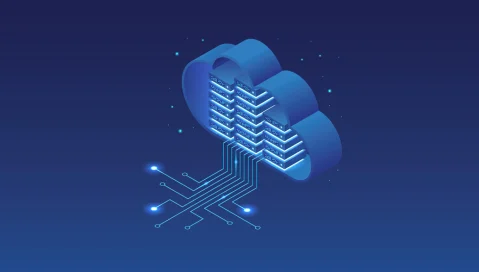Why SaaS is Better for Your Data Security Strategy
Why SaaS is Better for Your Data Security Strategy
Why SaaS is Better for Your Data Security Strategy
11 Sept 2019
Aptean Staff Writer
According to CloudVision 2020: The Future of the Cloud, 66% of IT professionals cite security as their top concern when adopting an enterprise cloud computing strategy. That same report projects that by 2020, 83% of all enterprise workloads will be in the cloud. As the vast majority of enterprises migrate their data to the cloud, security concerns remain squarely focused on where the data resides.
The truth is that cloud security is just as susceptible to human error as on-premise systems but can be far more secure in the right hands. What is important is the strategy behind maintaining those environments.
If data security is not top of mind for your organization today, it should be. Cybercrime-related losses are expected to reach $6 trillion annually by 2021, according to cybersecurity firm Ventures, and often include higher customer turnover and acquisition costs. Hackers are growing more sophisticated every day, and a single breach may inflict damages so severe to an organization’s reputation that they may never recover.
Legislators are also paving the way for increased governmental scrutiny around data security. In the US, 30 states are now preparing legislation mirroring the standards outlined in the European Union’s (EU) General Data Protection Regulation (GDPR). Worldwide, new rules and regulations will soon levy harsh fines on organizations that do not comply with standards for how data is collected, stored, used, maintained and updated.
A lax approach to data security is no longer a safe decision for any business.
Staying a Step Ahead
When it comes to data security, the number of potential entry points in your company’s network expands every day. A BYOD (bring your own device) policy, for example, allows employees to log into their employer’s secure environment from their mobile phones, tablets, and personal desktop computers. This exposes corporate systems to a far greater set of vulnerabilities, outside threats and social engineering attacks.
Hackers are like mice trying to gain entry into your house, searching for every possible entry point and exploiting whatever opening they find. Although companies work hard at plugging those holes, hackers are continually developing more effective methods of exploiting those vulnerabilities, making it an ever-increasing challenge to stop them. Security teams need to plug thousands, even millions of holes in a network, whereas a hacker only needs to exploit one!
It isn’t possible to plug all the ways for a mouse to get into your house, just as it isn’t likely to eliminate every entry point in your system. The key to stopping a horde of mice from nesting in your basement is to plug more holes than your neighbors. In facing cybersecurity threats today, you don’t necessarily need to be the best - you just need to be better than the next target. Building an environment that is less attractive to hackers is the key to reducing attacks.
A comprehensive security strategy must recognize that those security holes exist and identify the best way to stay a step ahead of other targets. Ira Winkler calls this the risk optimization point in his book “Advanced Persistent Security.”
Preparing for Cybersecurity Legislation
The growing desire to protect the rights of individuals and their personal data has led to the creation of new privacy laws across the world. These laws require organizations to take responsibility for the way they collect, maintain, store and process data.
General Data Protection Regulation (GDPR), which came into force in May 2018, holds organizations accountable for how they secure data with fines reaching 20 million euros or 4% of global turnover for violations. It also includes the potential for criminal charges at executive levels for the gravest of abuses.
Similar legislation is coming to the United States, with California leading the charge enacting California Consumer Privacy Act (CCPA) legislation regarding cybersecurity and protecting its residents’ personal information. Specifically, new laws will mandate manufacturers of Internet of Things (IoT)-connected devices to be equipped with security features starting January 2, 2020.
Organizational data strategies today should include a plan to meet these safeguards while also accommodating new privacy legislation as they come into force.
Securing a Partner to Leverage Cloud Security
Vulnerabilities exist in every computing environment. The question is, will cloud or on-premise hosting provide a more comprehensive solution to manage your enterprise-wide data security strategy?
For most organizations, the benefits of cloud security far outweigh the risks. Here are a few reasons why the cloud may be the optimal choice for organizations focusing on improving data security:
Knowledge – No one can be an expert in all things when it comes to data security, and the cloud allows organizations to buy into the collective expertise of a team focused solely on defending against constant data security attacks.
Vulnerabilities – Every integration point and hardware device increases the attack surface of an on-premise system, whereas a cloud-hosted environment lowers the attack surface to threats. Scalability – Businesses can instantly scale up or down, depending on business needs, user requirements and company growth.
Agility – Enterprises can rapidly adapt to changes in the business environment when disconnected from legacy systems and continual hardware upgrades.
Cost – Companies pay only for what they use and eliminate costs associated with maintaining and upgrading hardware infrastructure.
Better Equipment – Smaller operations are not limited by having small IT budgets, as they get equal access to enterprise-level, multi-million dollar hardware systems without massive capital expenditure. The benefit of cloud environments is a singular focus, which is essential for any organizational security strategy. On-premise systems are reliant on individuals and teams, whereas cloud hosting providers monitor activity around the clock and are always prepared to react to emerging threats.
The High Cost of Failure
When building a security strategy for your organization, the ultimate question is: What is the cost of failure? If a security breach halted your business, how much would it cost to be down for an hour? 24 hours? A week? Will an internal team be able to step in address the problem immediately? What are the reputational costs? What are the records you house worth on the open hacker market? What are the fines that you may have to incur?
When buying into a SaaS solution in the cloud, you buy into a team of experts that can isolate environments and ensure you recover quickly with minimal data loss. The economies of scale that come with cloud hosting allow you to take advantage of cutting-edge hardware and security protocols that would otherwise be impossible to maintain internally.
Whether your organization realizes this or not, you are already dealing with data security threats. You have to decide if you have the right technology, personnel, and processes in place to appropriately respond to emerging threats as well as new rules and regulations.
For most organizations, the cloud offers the most effective and affordable way to manage your enterprise data security strategy. With Aptean's leading cloud software solutions, you’ll have a clear advantage over any security threat.
Whether you are running an Enterprise Resource Planning (ERP) system, a Manufacturing Execution System (MES), a Warehouse Management System (WMS) or a Complaints Management System, you’ll benefit from state-of-the-art cloud technology, supported by a team of dedicated cloud experts focused solely on protecting your data. Aptean’s software has lived in the cloud for over a decade.
The challenge of staying ahead of hackers increases daily. Our team of cloud professionals can neutralize the risks of moving to the cloud with up-to-the-minute knowledge of the latest best practices. This knowledge is critical to stopping hackers before they infiltrate your system, minimizing the impact on your operations if a breach were ever to occur.
A hacker attack occurs every 39 seconds according to a Clark School study at the University of Maryland. Most businesses don’t have the right technology, people and processes in place to keep up with the speed of today’s threats. Trusting Aptean’s cloud software with your vital data can be the most crucial step toward closing your security gaps and safeguarding your organization’s most valuable assets.
Want to dive deeper into why SaaS is better for your data security strategy? Check out the full whitepaper from Aptean or contact us today.
Or, you can check out our guide to understand the other key differences between on-premise and cloud deployments beyond security.
Blog





Prêt à transformer votre entreprise ?
Nous avons les logiciels sectoriels spécialisés dont vous avez besoin pour développer votre entreprise.



